Your baby will most likely have up to seven colds before their first birthday and there are more than 100 viruses that can cause them. So you’re not alone if you find yourself with a cranky baby with a snotty nose.
How do you know if your baby has a cold?
Colds typically start with crankiness that morphs into a runny nose or congestion. Snot usually starts out clear then progresses to a thick yellow or green goop. Colds can also come with a fever, cough, sneezing and general crabbiness (you can hardly blame them). These symptoms often contribute to decreased appetite, trouble sleeping, and difficulty breastfeeding or taking a bottle.
How long does a cold last in babies?
Colds tend to last between one and two weeks. A few days warming up in the bullpen: fussiness, fever, clear runny nose. Around three days of the cold: fever is usually gone, and your baby is full of goopy yellow snot. Then a few days just to drive you nuts: your baby is feeling right as rain but is still covered in crusty snot.
Products & tips to help a baby with a cold
There are some great ways to make your poor kiddo feel better when they have a cold. Here are the top suggestions from medical practitioners and seasoned parents. Most moms on our Facebook thread also suggested having all of this stuff on hand so you’re not running to CVS at 3 am. You can also check out our rundown of the medication that is great to have at the ready when you have a baby.
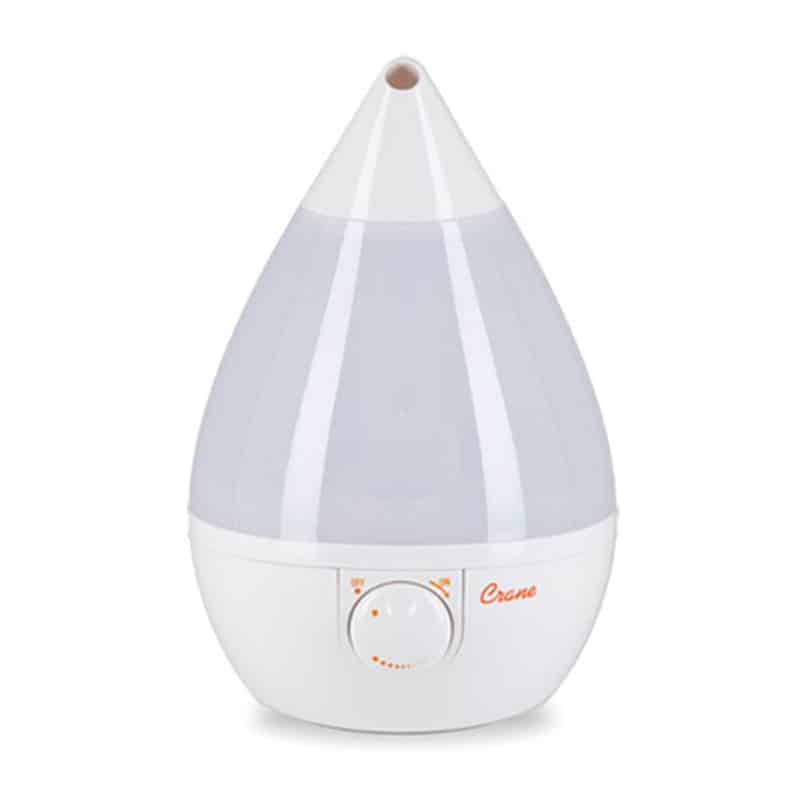
Cool mist humidifier
Get yourself a cool mist humidifier to help relieve congestion, scratchy throats, and thin out the general goop in your baby’s head.
The water that reaches your baby is the same temperature in a cool mist and a warm mist humidifier, except there is a high burn risk with the warm mist version so you may as well go the safer route.
Ideally, get an ultrasonic humidifier because it vibrates at a frequency that creates a mist that easily dissipates into the air, rather than droplets that fall to the ground. Place it on a flat, water-safe surface at least 3 feet off the floor.
Can I add essential oils to my humidifier?
Nope. Most good humidifiers come with a clear tank so you can see how much water is left and/or if you’re growing sea monkeys in there. Essential oils damage the tank and can cause it to crack. There’s also some debate on whether certain essential oils are safe to use around babies, so do your research before you jack the room full of essential oils in a separate diffuser too.
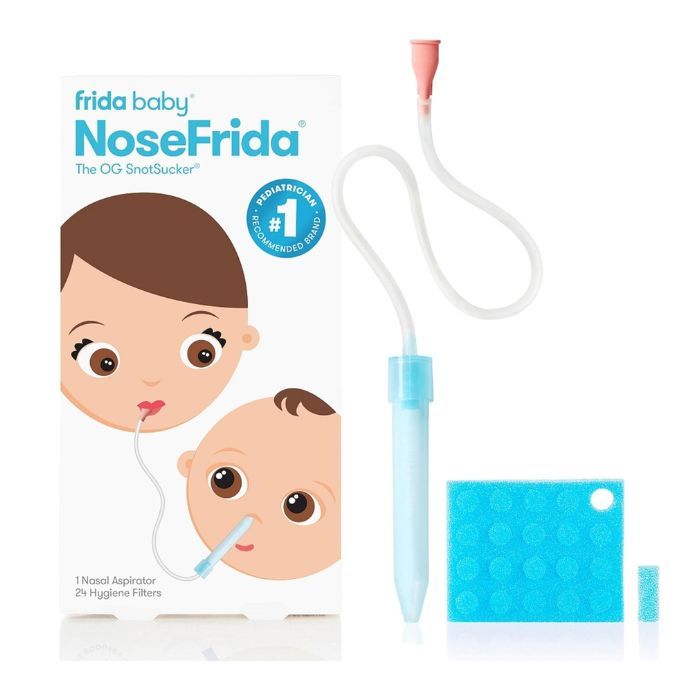
Snot Suckers
Yes, these sound gross – welcome to parenthood – but you don’t actually come into contact with the snot. The award-winning NoseFrida SnotSucker uses your own suction to clear stuffy noses gently, and all the mucus gets trapped in the filter. Most parents preferred this over bulb aspirators because they had more control over the suction.
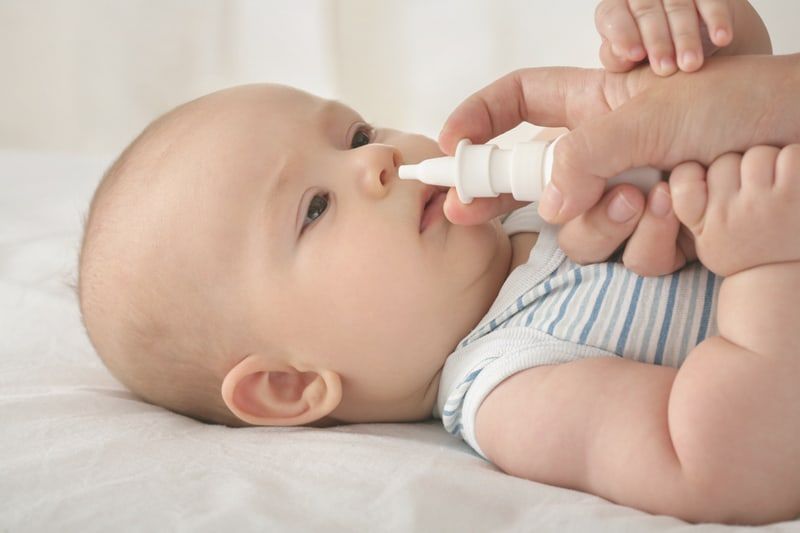
Saline Spray
Saline is essentially sterile salt water that doesn’t sting if it goes up your nose. It helps break up any gunk in your baby’s nasal passages and helps drain it out. Saline spray got higher marks than drops because parents felt it got further up the nose.
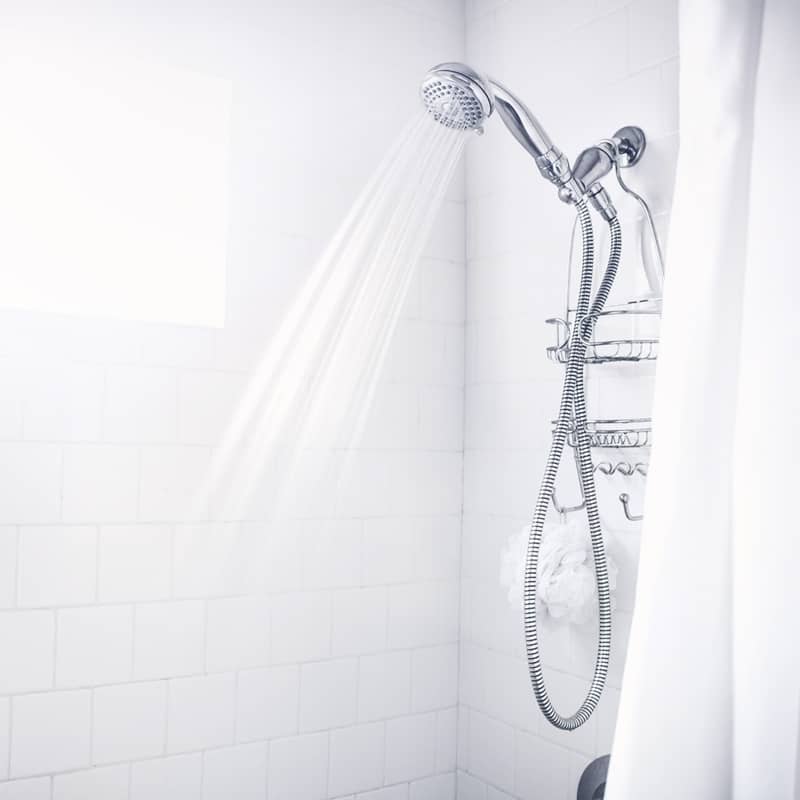
Steam
Sit in your bathroom with your baby and then crank the shower, or take them in the shower with you. The steam will help break up the goop and make them breathe easier.
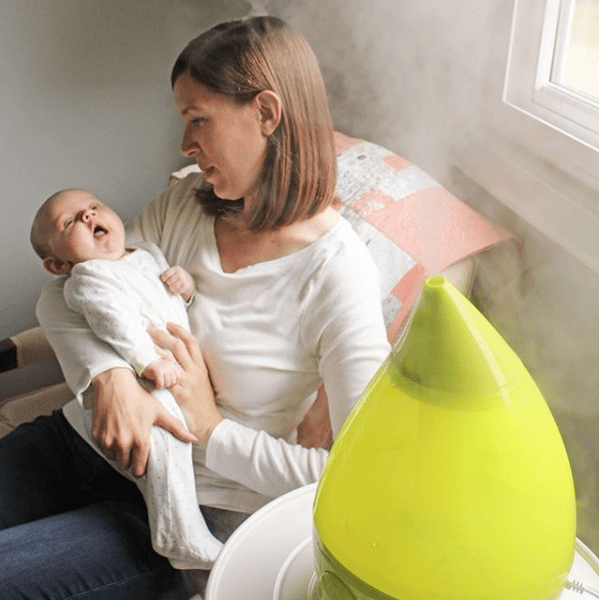
Extra love and cuddles
Not surprisingly, when babies feel sick they can get extra needy. Sometimes they want to nurse on demand, sometimes they want to be upright and close in a carrier, and sometimes they just want to be an angry snotty honey badger and that’s understandable.
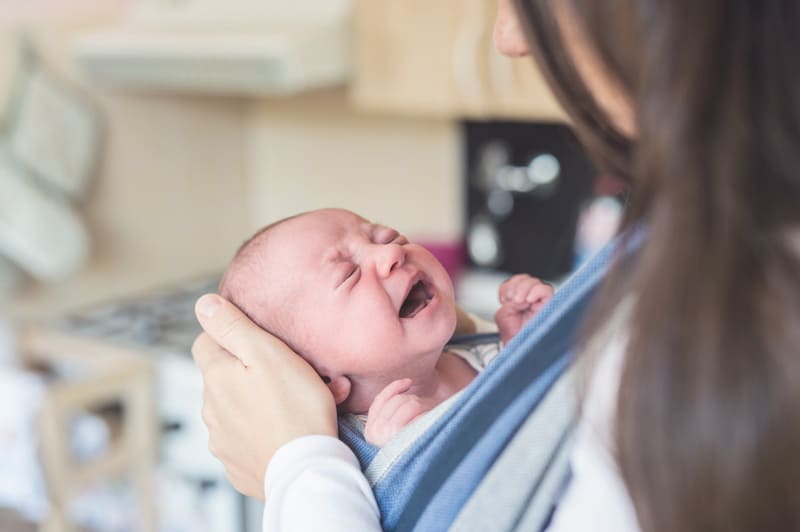
Is a cold dangerous for a newborn?
Generally, no, but in rare cases, they can get serious. As with everything with very new people, nothing can become something really fast. See a doctor for any of the following:
Under 3 months old:
- Give your doc a shout at the first sign of a runny nose, cough or fever because newborns can quickly develop pneumonia, croup, and other nasty treats.
Over 3 months old:
- fever over 100.4 F (38 C)
- fever for more than 5 to 7 days
- labored breathing
- blue lips
- rash
- vomiting
- diarrhea
- dehydration – not wetting as many diapers as usual
- persistent cough
- thick, green nasal discharge
- anything that just seems ‘off’ such as odd crying, ear rubbing, or your baby seems like they are in pain.
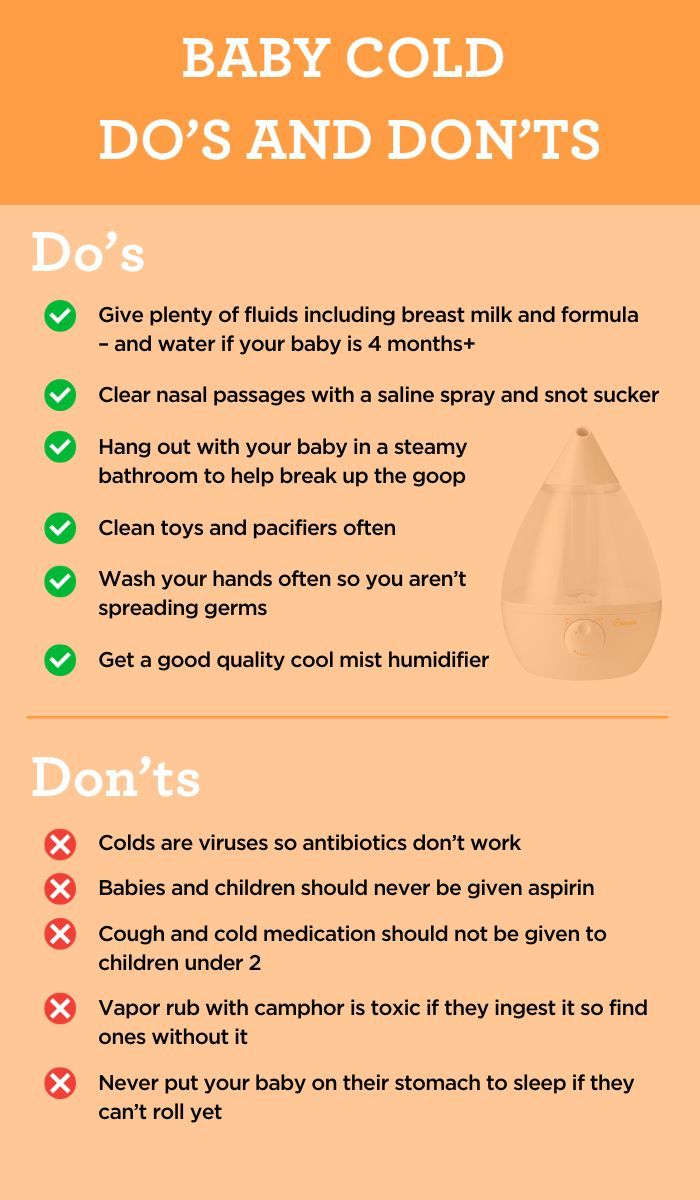
Babies with colds are heartbreaking to watch, but with a few handy products and a whole lotta love, your baby will be happy and snot free in no time!
Do you have a tip for treating a baby with a cold?
Let me know in the comments below!
Our next reco: Scary Shit Series - Respiratory Syncytial Virus (RSV)

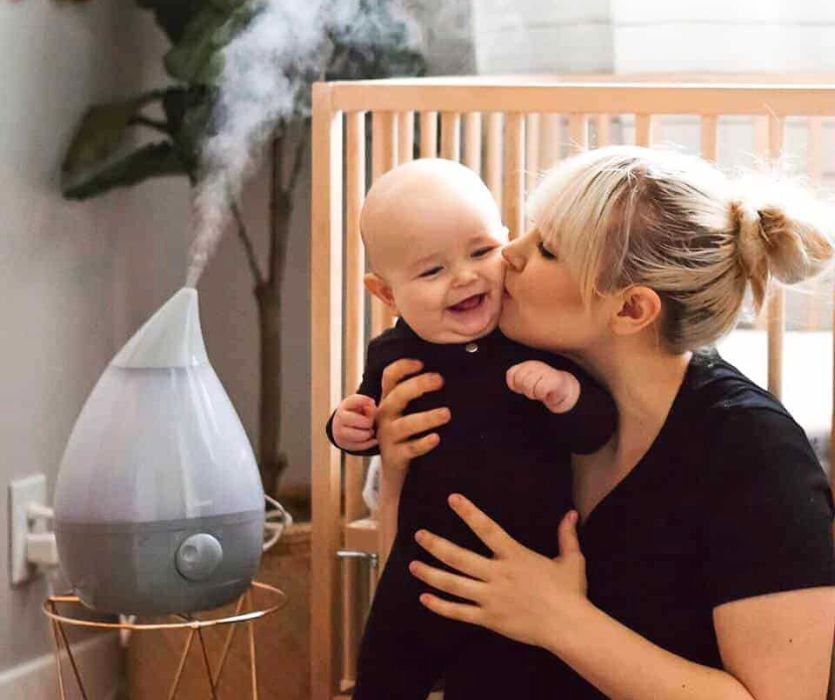
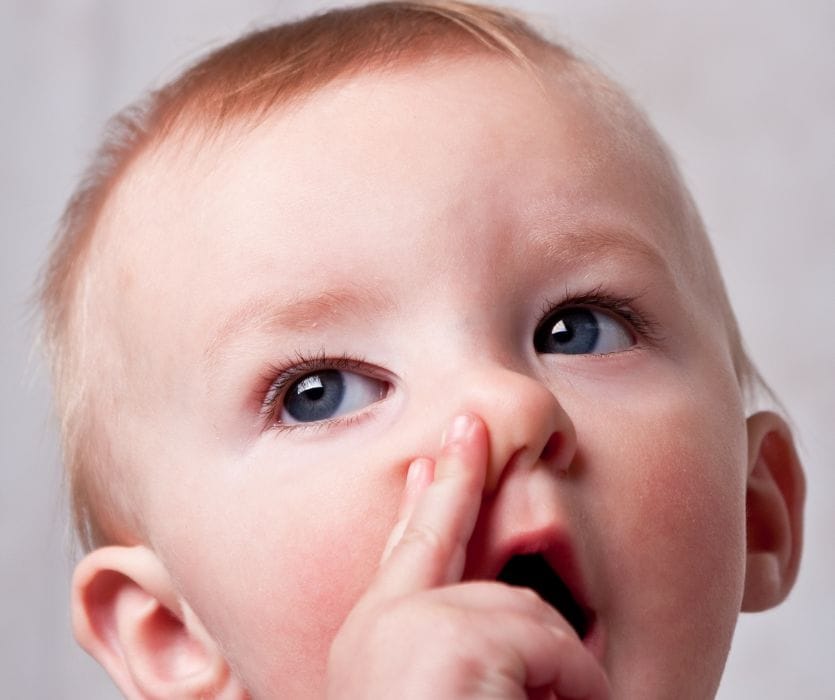
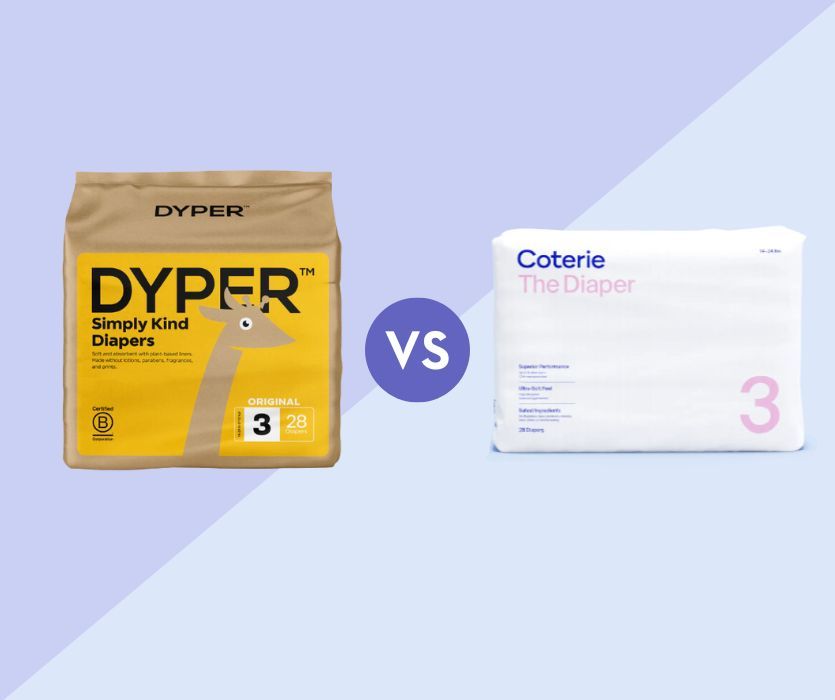
Leave a Comment